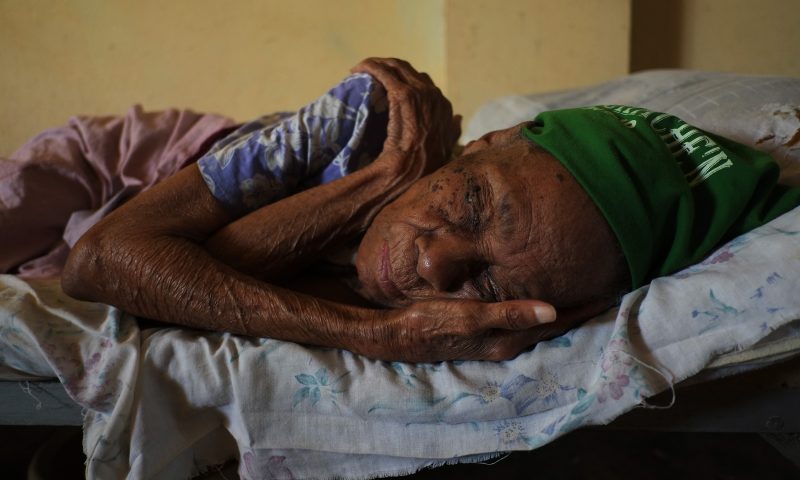
Health is an essential human right that evolves throughout the life cycle. Providing affordable, quality and accessible health services can safeguard the basic and essential needs of people at the margins, such as older persons.
In celebration of the International Universal Health Coverage Day, 12 December, 2018, HelpAge International and AARP International launched the Global AgeWatch Insights Report: The Right to Health for Older People, The Right to be Counted as a joint initiative.

Mr. Serge Kapto, Policy Specialist on Data for Development at UNDP, and Ms. Aimee Carter, Vice President of AARP International, welcomed the report’s inclusive, rights- and equity-based approach to assessing the social determinants and structural barriers to older persons’ health.
In his keynote speech, H.E. Rubén Armando Escalante Hasbún, Permanent Representative of the El Salvador Mission to the UN, emphasized the need to map out where political accountability for health care is located, while reaffirming his commitment to address the right to health for older persons at the UN High-Level Meeting on Universal Health Coverage next September, 2019.
Panelists unequivocally underscored that the current norms, practices and data systems fail to capture the diversity of older persons and the unique and complex challenges to healthy ageing. Such protection gap is more pronounced and particularly detrimental for older persons at the intersections of marginalization, who wrestle with both biological changes and the lasting impact of accumulated stigmatization and discrimination.
Sharing the findings of the report, Ms. Patricia Conboy, Head of Global Ageing, Advocacy and Campaigning at HelpAge International, remarked that “growing old is not a new human experience, but the way people are ageing is, and older persons today are at the frontlines of this shift.” She stressed that the global health community needs to push for policy and attitudinal shifts toward gender- and age-sensitive health services and keep pace with the transitions in demographic, epidemiological and health systems.

Echoing the calls for integrated and holistic services to meet the diverse health and social care needs of older persons, Mr. Werner Obermeyer, Deputy Executive Director of the WHO, proposed providing capacity and functionability-related services, such as restorative surgery, assistive devices, functional supplements, and long-term care, and cited Japan, Burkina Faso and Rwanda as examples of countries that have expanded health coverage.
The Chief of Population and Family Planning Section at UN DESA, Ms. Karoline Schmid, presented the outcomes of the 2015-2018 Multi-Indicator Survey on Ageing (MISA) project in Sub-Saharan Africa and argued that disaggregated and systemic data will serve as an empirical evidence and knowledge base and help account for socioeconomic, cultural and gender variances of older persons.
As the Advocacy Coordinator in the District Council of Sages in Bogota, Colombia, Ms. Conchita Ramírez cautioned that coverage does not automatically lead to access and called attention to the chronic shortage of health professionals trained in geriatrics, despite the high coverage of the General System of Social Security in Health, which reached 90.5% in 2017. She pressed for in-depth analytical studies on older persons as well as for building platforms to allow for their active and dignified participation.
Older persons’s right to health will be discussed at the 10th Working Session of the Open-Ended Working Group on Ageing, hosted by UN DESA from 15 to 18 April, 2019.
Learn more about the Universal health coverage (UHC) and UN DESA’s work on Ageing.
Source: UNSDN
 Welcome to the United Nations
Welcome to the United Nations